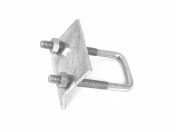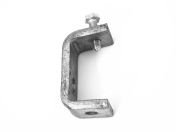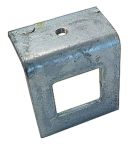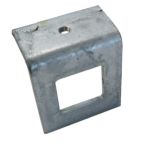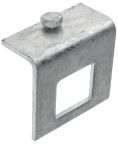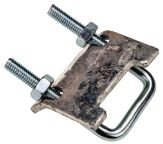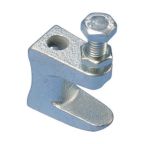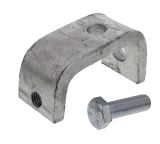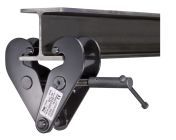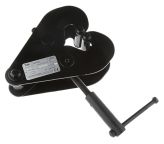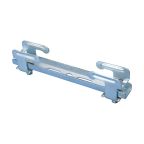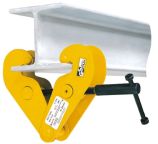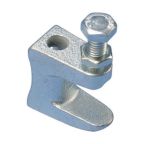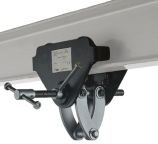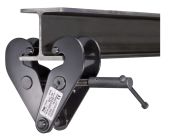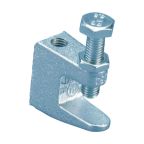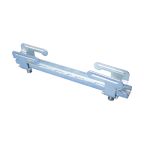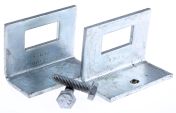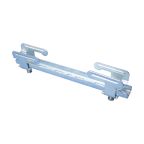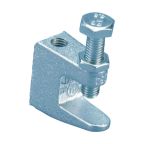Beam Clamps
Beam clamps are designed to provide steel-to-steel connections between structural beams eliminating the requirement for drilling, welding or other attachment techniques. Beam clamps can be clamped to a beam and used as rigging devices for hoist equipment pulley blocks or loads. Beam clamps can be mounted to ceiling and wall beams for safely securing conduit, fixtures, electrical boxes and other hardware to the beam. Some beam clamps include conduit hangers and J-hooks on which to hang data communication cables. Beam clamps can be made from carbon steel, stainless steel, malleable iron and forged steel.
Types of Beam Clamp
There are many different types of beam clamp tailored for specific applications and industry specifications
• Window Bracket Beam Clamp: This is a simple style of beam clamp used for fitting strut channel to the underside of steel beams and girder flanges. These clamps have an opening or window cut out of the side of them into which the strut channel is inserted. A bolt then passes through the top of the clamp to secure it the girder. These window bracket beam clamps are ideal for suspending channel support strut from main steel frameworks in buildings.
• C-Clamp Style Beam Clamp: C-Clamp beam clamps consist of a robust C shaped metal bracket with a metal set screw running down the centre. The bracket is fitted around the beam and is secured by tightening a set-screw or lock nut between the jaw base and the beam flange. C-clamps are available in a range of sizes and are attached to the top or bottom of metal beams, purlins, channel or angle iron
• Universal Beam Clamps: Universal beam clamps are designed to accommodate hook-mounted hoist or load blocks loads and are ideal for lifting, holding and positioning steel beams for construction. These beam clamps have adjustable jaws which are clamped around the beam and secured using a central threaded spindle. A locking device ensures a secure and safe connection to the beam. The design of universal beam clamps helps reduce flange stress by applying the load inside of the flange edge. The wide jaws of these beam clamps enable them to fit a wide range of flange widths and beams
Popular Searches
Related links
- YALE Beam Clamp
- YALE Beam Clamp Fits Channel Size 75 → 230mm
- Girder Clamps
- RS PRO Hot Galvanised Steel Beam Clamp, Fits Channel Size 41mm
- RS PRO Hot Galvanised Steel Beam Clamp, Fits Channel Size 21 x 41mm
- Unistrut Galvanised Steel Beam Clamp, Fits Channel Size 21 x 41mm
- nVent CADDY Galvanised Steel Beam Clamp, Fits Channel Size 13mm
- Unistrut Steel Beam Clamp, Fits Channel Size 41 x 41mm
